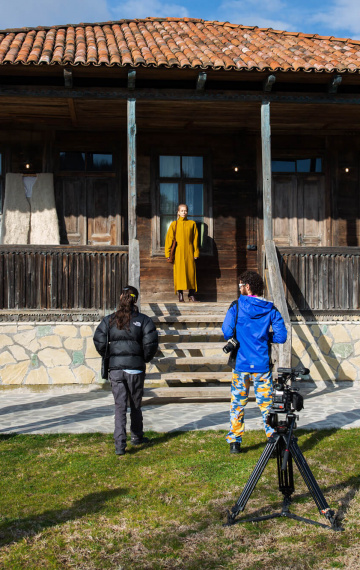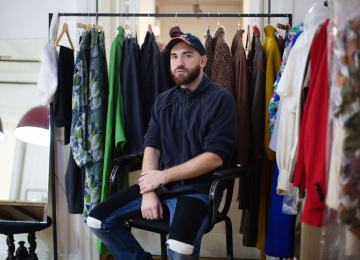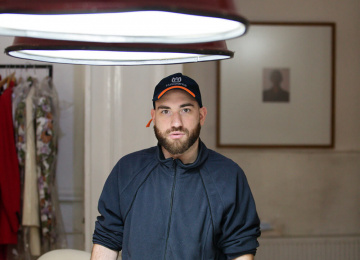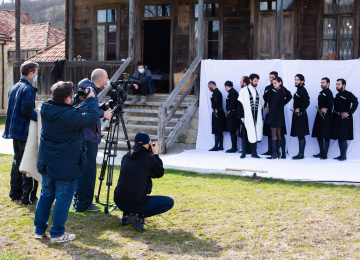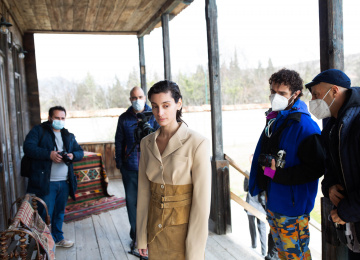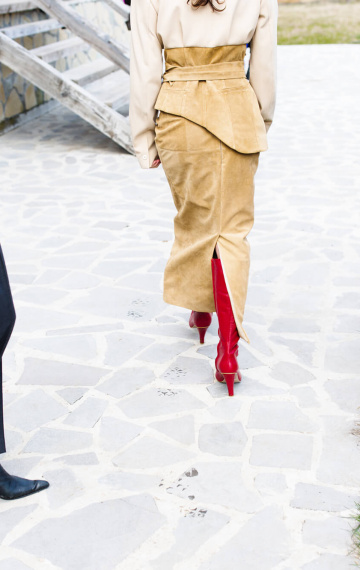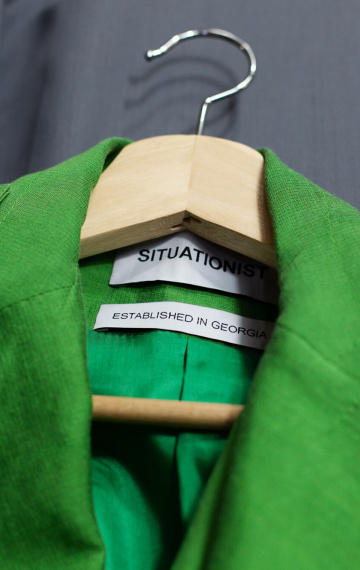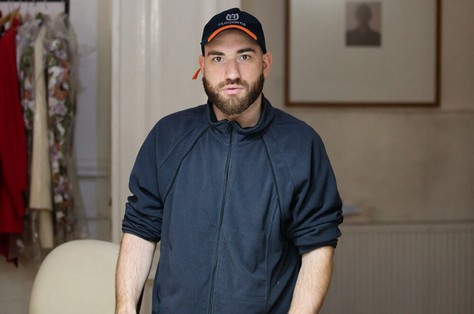
Imagine an avant-garde fashion collection being filmed on location in a remote village in Georgia, where abandoned wooden houses are covered in snow. That’s what Situationist did to present its Fall/Winter 2021-22 collection on the Paris Fashion Week’s digital platform at the beginning of March. And so, Georgian regions were introduced to the international fashion community.
To improve economic development in Georgia, the EU has been supporting the establishment of clusters that help SMEs team up with international businesses in their industry and become more competitive on the market. The Georgia Apparel and Fashion Association (GAFA) was set up this way with the support of GIZ’s Clusters4Development project, funded by the EU as part of its EU4Business Initiative. When the Covid-19 pandemic hit the world, EU4Business and GIZ decided to help Situationist, an SME member of GAFA, adjust to the challenging new reality through digitalization. Situationist not only survived the pandemic, but found inspiration and discovered innovative ways to bring its work and ideas onto the world stage.
Sold internationally and “established in Georgia”
Situationist was founded in 2016 by self-taught designer Irakli Rusadze brand debuted at the Mercedes Benz Fashion Week in 2018 and received a spotlight on the international fashion industry. This was followed by spots at some of the major fashion weeks in Milan, London and Paris.
Creative director Irakli Rusadze was interested in art from an early age. By the time he was 12-13, he had made up his mind to work in fashion. Step-by-step Rusadze saved his money and began to develop the brand that would later become the first Georgian fashion label represented at Paris Fashion Week.
Situationist is more than just a name: it represents the idea of unity. Rusadze appreciates the craft and artistry of every person involved in the process. He wanted to create a brand that would not be named after a single individual, but would represent the idea that many people stand behind the success of the fashion label: designers, tailors, marketers and others. As a sign of appreciation, the label on each piece of clothing has the name of the seamstress that worked on it.
Situationist crosses traditional Georgian heritage with sophisticated and edgy avant-garde style to make sustainable, high-quality clothes that have been recognized internationally. Even though at this point the brand’s clothes are not sold in Georgia, its logo says in bold - “Established in Georgia.”
To Paris Fashion Week with EU assistance
When the Covid-19 pandemic hit, Situationist was as stunned as the rest of the fashion industry. Retail shops, the lifeblood of fashion labels, saw demand collapse. Some even cancelled contracts because customers weren’t coming into their bricks and mortar stores any more. Many smaller fashion labels could not survive this shock and stopped clothes-making for good. Others, like Situationist, were able to find support and inspiration to move into new formats.
“Even during the Covid-19 pandemic, we managed to sell our clothes and to hang onto our employees,” says Rusadze. “The brand did not miss a single season because of GAFA and EU support. What’s more, this wasn’t one-time support, so it has motivated us to grow and develop even further.”
During lockdown in spring 2020, the company faced a major challenge because it had to deliver orders. At this critical point, Clusters4Development helped Situationist cover the cost of transportation for its staff. The project also contributed to the development of visual digital materials for Situationist’s presentations at PFW. The video was shot in different Georgian villages and shows the label’s Fall/Winter 2021-22 collection. Models dressed in bright, colorful avant-garde clothes inspired by Georgian culture and heritage, fall into white snow, walk on muddy roads or stand in clear streams. From the old towers of Svaneti to mountainous villages of Imereti and to beautiful sunsets on the beach, the video shows different parts of Georgia in all their uniqueness.
“I love live fashion shows where you can communicate with people,” admits Rusadze. “It has a completely different energy. But with the digital format, we were able to show the variety of Georgia and the uniqueness of our character to the rest of the world. That’s something you can’t bring to a live fashion show.” He adds that such videos are very important for keeping his brand authentic.
Situationist’s video presentation received positive feedback, showing its creators that even during difficult times such as the Covid-19 pandemic, the brand can continue to grow, develop and reach even higher. With Clusters4Development support, Situationist’s sales grew 34% in 2020, and the label established connections with three new vendors. Situationist clothes are currently sold via a dozen online stores and leading international fashion retailers, such as NET-A-PORTER and CASIMIR.
Georgian fashion labels go digital
At this point, GAFA has 28 members, represented by textile manufacturers, fashion designers and clothing factories that altogether employee over 1,000 Georgians. GAFA aims to represent, promote and support Georgian apparel and fashion companies by improving their competitiveness in the local and international markets, and by providing apparel producers, independent brands and designers with the tools and skills that will allow them to be their most competitive in terms of sustainable production, product quality, fashion design, skilled labor, and international branding.
Digitalization is one of the core objectives of GAFA. The association supports its members to not only obtain knowledge and skills, but also introduce digital tools into their business processes, establish innovative technologies, make their production more sustainable, and increase international sales.
According to GAFA Manager Keti Meparishvili, digitalization includes not only customer acquisition but the transformation of operational processes as well. In Georgia, about 70% of clothing manufacturing is performed by hand, which takes time and patience.
“Any company needs to be sustainable to survive in the modern world,” says Meparishvili. “That’s why GAFA helps its members to establish innovative technologies, produce clothes faster and, as a result, increase international sales.”

